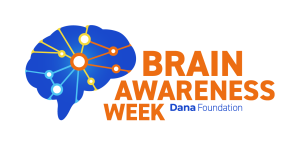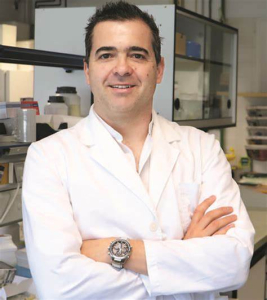
BioISI joins Brain Awareness Week and its goal of promoting brain research for it brings hope to patients in terms of treatments, preventions, and possible cures for brain diseases and disorders and life quality enhancement.
Get to know our researcher Cláudio M. Gomes and how his lab’s investigation contributes to the development of brain research by reading the interview that lead to the creation of his BRAINScientist.ID.
 What are the scientific questions you are trying to answer within the brain research field?
What are the scientific questions you are trying to answer within the brain research field?
Protein aggregation and the accumulation of toxic protein deposits in the brain is a pathological hallmark in several neurodegenerative dementias. Our research aims to investigate the mechanisms and the biochemical modulation of these processes in the nervous system. We are investigating the aggregation of amyloid-b and Tau, two proteins which are implicated in Alzheimer’s Disease. Our current focus is on novel chaperone proteins [proteins implicated in the regulation of the folding and assembly/disassembly of other proteins] in the brain that inhibit aggregation, toxicity and spreading of pathology.
What passionate you the most in this field?
The complexity of the brain and the challenge to dissect that enormous complexity using simpler model systems that allow us to interrogate the biochemistry of neurodegeneration.
What is the most challenging aspect of your work?
The most challenging aspect of our work is to establish experiments that allows us to go from molecules, to cells to organisms. To understand protein aggregation phenomena in the brain we need to test our hypothesis in experiments that recreate the biochemical complexity of the neuronal environment, to use adequate cellular systems and to inspect animal models of disease. This is extremely challenging but is also one of the most exciting parts of our work, as it involves bringing together techniques from different fields and to engage in collaborations.
What is the most promising result from your current research?
We recently uncovered novel protective functions in a family of brain proteins that are elevated in Alzheimer’s Disease. (Cristovão et al 2018 Science Advances; Moreira et al 2021 Nature Communications). We think that the protection these proteins afford against protein aggregation and toxicity may be relevant at the onset of disease.
How do you think that result can impact patients suffering from brain diseases?
We have deciphered molecular and structural factors that allow for protective chaperone-like functions, inhibiting the aggregation and toxicity of amyloid-b and Tau. We will now design peptides and antibodies that mimic such inhibitory interactions, and hopefully these compounds might be used as tools to detect toxic oligomers or to block the formation of aggregates in cells. Hopefully these approaches may inspire future therapeutics to mitigate disease.
Share with us an advice for improving brain health.
Did you know that lack of sleep may increase dementia risk? So, take care of you brain by taking a good night’s sleep!
Read more info about Cláudio M. Gomes‘ Lab in its website.
Or in its Social Media channels: Twitter | Facebook | Linkedin

